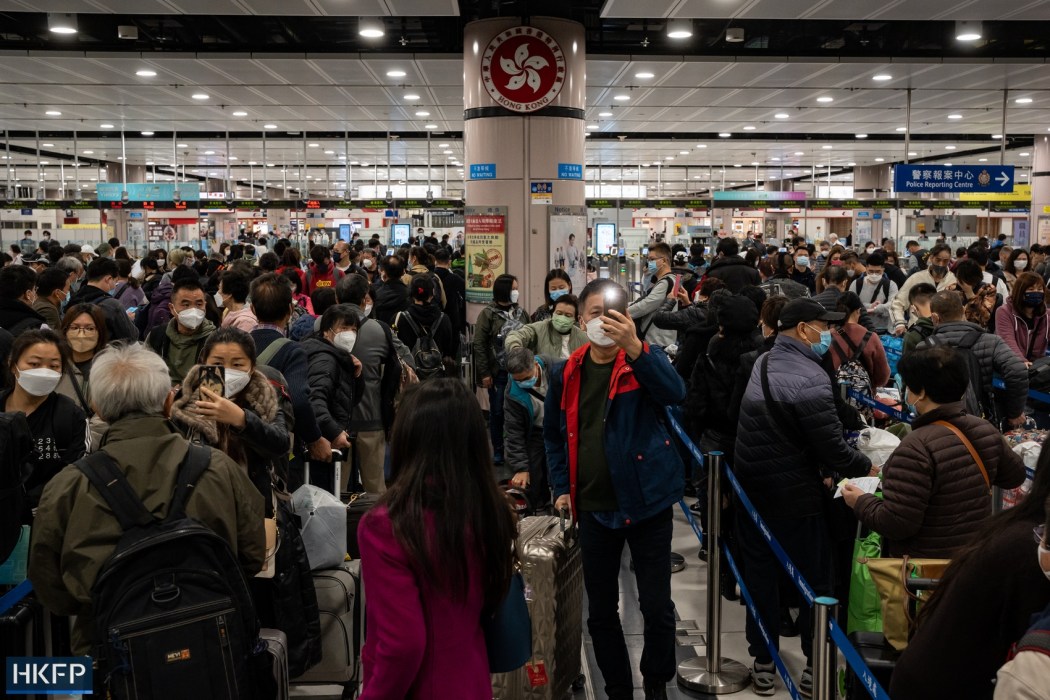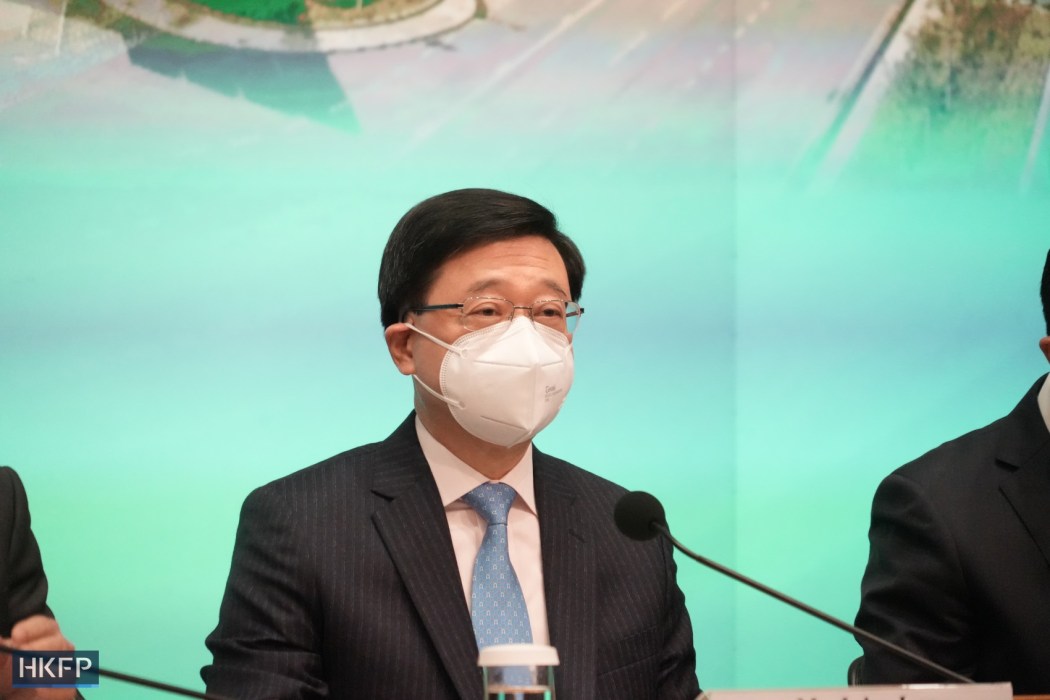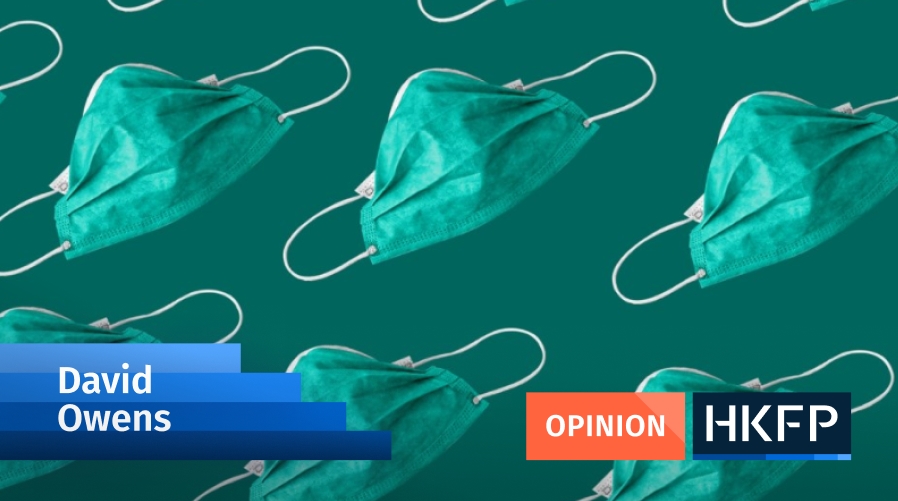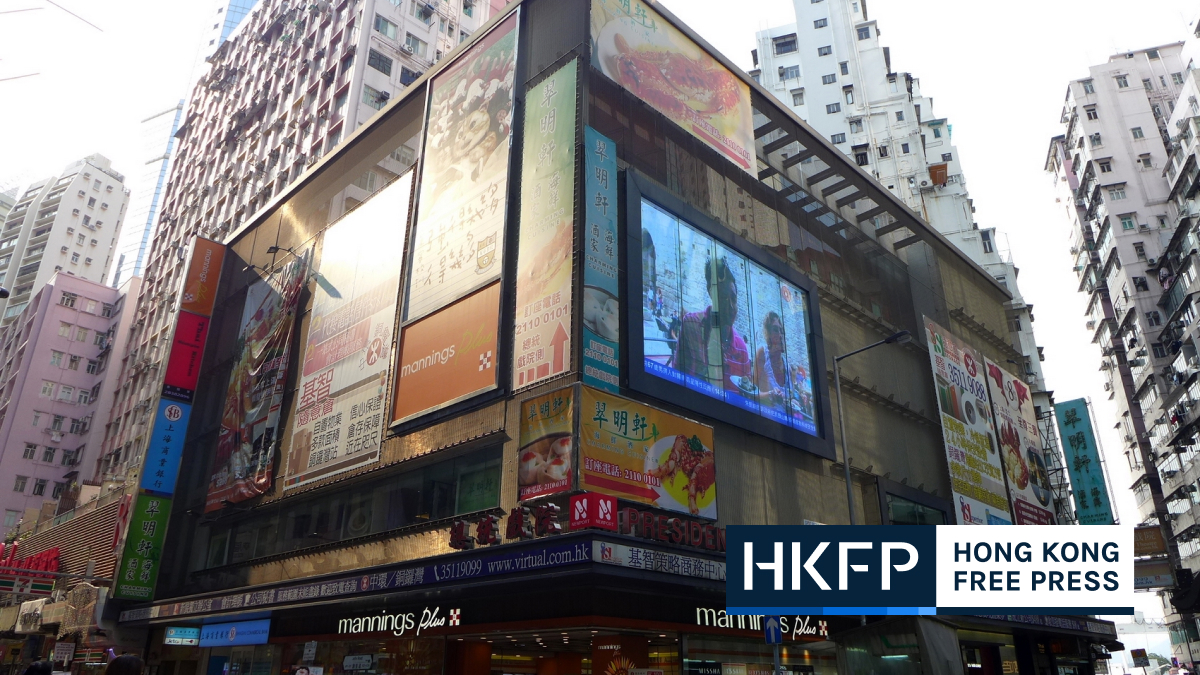Travellers crossing the border between Hong Kong and mainland China will no longer be required to produce a negative polymerase chain reaction (PCR) Covid-19 test result from Monday.
All border checkpoints will resume operations on Monday, while travel quotas will also be scrapped, Chief Executive John Lee said during a press conference on Friday.

However, travellers entering mainland China from Hong Kong or Macau who have travelled overseas in the previous seven days must still obtain a negative Covid-19 PCR test result taken within 48 hours of their departure, the Hong Kong and Macau Affairs Office announced in a press release on Friday morning.
Anyone going to the mainland will also be required to complete a health declaration form ahead of their and undergo regular temperature checks at border checkpoints. If there are any abnormalities in their health declaration form or if they display any symptoms of fever, they will have to take a Covid-19 test. Those who return a positive result will be requested to isolate at their residence or be hospitalised.
Separately, travellers between Hong Kong and Macau will no longer need to show proof of a negative Covid-19 rapid antigen test result from Monday.
“From January 8, we started orderly resumption between Hong Kong and the mainland. Families were able to reunite, businesses, retail, catering and many other sectors have been revitalised, we have seen vibrant economic activities, and people have been much happier,” Lee said. The “full resumption of normal travel” would “further promote exchanges between people and economic activities,” he added.
While quarantine-free travel between Hong Kong and mainland China resumed last month, travellers going both ways were required to obtain a negative result from a Covid-19 PCR test taken within 48 hours of their departure.
The number of mainland Chinese arrivals in recent weeks has remained significantly below pre-pandemic levels.
“Yesterday, we launched a major global publicity campaign,” Lee said, referring to the “Hello Hong Kong” campaign that will see 500,000 tickets given away to overseas travellers in an attempt to revive tourism after three years of strict Covid-19 rules.
“In 2023, Hong Kong will become even more vibrant and there will be more activities in the community and more happiness among the people,” he said.
The vaccination requirement for non-Hong Kong residents to enter Hong Kong will also be lifted on Monday. However, all international arrivals are still required to obtain a negative result from a Covid rapid test taken within 24 hours of their departure to board a flight to the city.
Chief Secretary Eric Chan said that since quarantine-free travel between Hong Kong and the mainland restarted, the city has kept in close contact with mainland authorities and made several necessary changes, including increasing the number of daily quotas during the busy Lunar New Year period.

“We have reviewed the operation of the first phase of the travel resumption and we have also considered the risk factors,” he said. “We believe we now have the condition to resume full travel.”
Health Secretary Lo Chung-mau said that the first phase of inital phase of quarantine-free travel between Hong Kong and the mainland had showed that mainland travellers present a low Covid-19 risk.
Since mid-January, imported cases have accounted for just 2.6 per cent of the total number of confirmed cases in Hong Kong. Among the imported cases, mainland travellers account for just 16 per cent, he said.
Lo added that the city would “work hard to ensure that the public healthcare system will not be affected adversely” by the next stage of the reopening.
From Wednesday, cross-border secondary students will also be allowed to come back to Hong Kong for school. Primary school students and kindergarteners will be able to return from February 22, authorities said.
Popular demand
Lawmakers have been urging the authorities to scrap the mandate after long queues were observed at some community test centres. One in Sham Shui Po saw residents queuing until 3 a.m. one night.

Hong Kong’s delegate to China’s top law-making body Tam Yiu-chung told Commercial Radio on Monday that as PCR testing stations in mainland China were gradually closing down, it was increasingly difficult for returning Hongkongers or inbound travellers to test before their departure.
“The mainland is no longer keen on PCR testing, but you are still requiring Hongkongers to test when they return, I think the policies do not quite match,” Tam said.
The DAB, Hong Kong’s largest pro-Beijing party, also wrote to China’s National Health Commission on Friday and urged it to cancel the need for pre-departure PCR tests.
Following a wave of protests across the country against its stringent zero-Covid policy, Beijing has largely scrapped its once-stringent Covid-19 restrictions, such as citywide lockdowns and compulsory isolation of arrivals.
Additional reporting: Peter Lee
Support HKFP | Policies & Ethics | Error/typo? | Contact Us | Newsletter | Transparency & Annual Report | Apps
Help safeguard press freedom & keep HKFP free for all readers by supporting our team

















